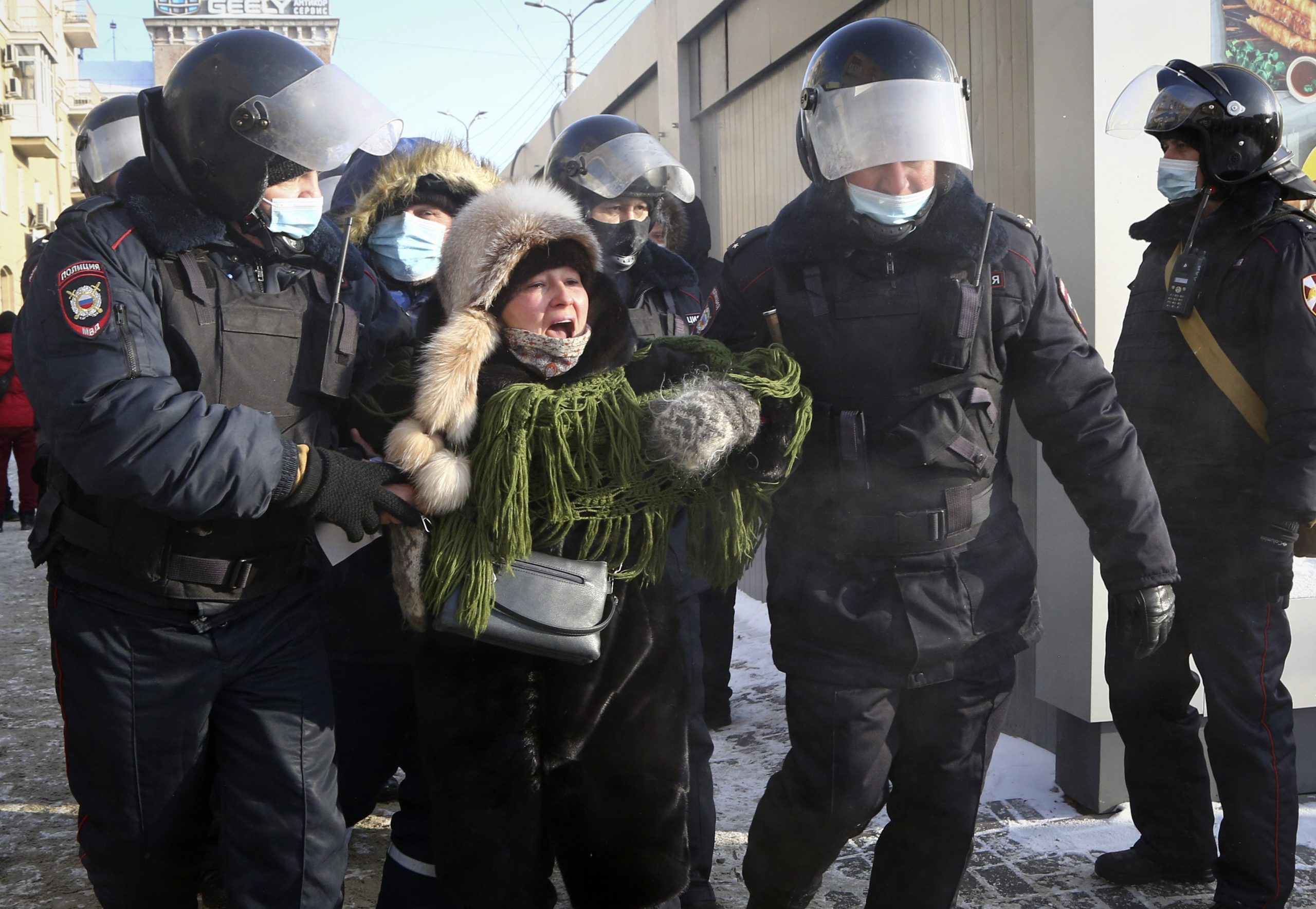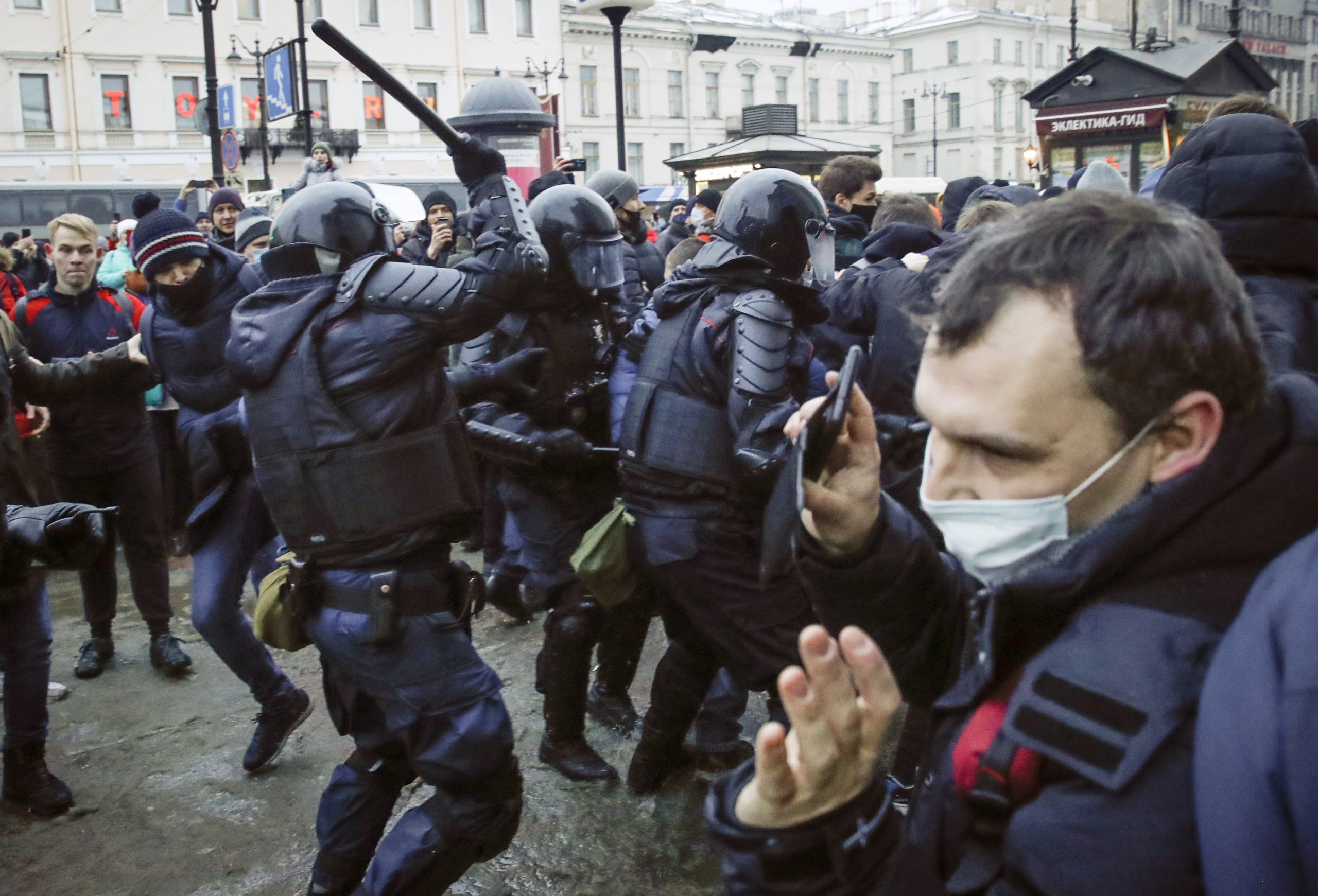The State Department called on Russia to release jailed anti-corruption activist Alexei Navalny and the protesters who were arrested during recent demonstrations.
More than 2,000 people were reportedly arrested across Russia on Saturday as protesters demanding the release of Navalny and condemning corruption within the government took to the streets in dozens of cities across the country.
“The United States strongly condemns the use of harsh tactics against protesters and journalists this weekend in cities throughout Russia,” State Department spokesman Ned Price said. “Prior to today’s events, the Russian government sought to suppress the rights to peaceful assembly and freedom of expression by harassing protest organizers, threatening social media platforms, and preemptively arresting potential participants.”

Navalny, one of Russian President Vladimir Putin’s most ardent critics, was jailed immediately after returning to Russia from Germany, where he had been recovering for months after Russian intelligence operatives were believed to have attempted to assassinate him with a Soviet-produced nerve agent.
Price said that Navalny’s arrest and the crackdown against protesters “are troubling indications of further restrictions on civil society and fundamental freedoms.”
“We call on Russian authorities to release all those detained for exercising their universal rights and for the immediate and unconditional release of Aleksey Navalny,” he added. “We urge Russia to fully cooperate with the international community’s investigation into the poisoning of Aleksey Navalny and credibly explain the use of a chemical weapon on its soil.”
Russia was apparently incensed after the United States posted an advisory on Friday about the protests and included the locations and times for demonstrations in a dozen cities. The Russian Ministry of Foreign Affairs quickly hit back and hinted at a “response” in a statement.
“All that coincides with Washington’s provocative doctrinal guidelines to encourage ‘protests in the countries with unwanted governments,’” the foreign ministry said. “Any attempts of this ‘coverage’ of unauthorized rallies will be regarded as gross interference in our country’s domestic affairs and will lead to a corresponding response.”
The Washington Examiner has reached out to the State Department for comment.

